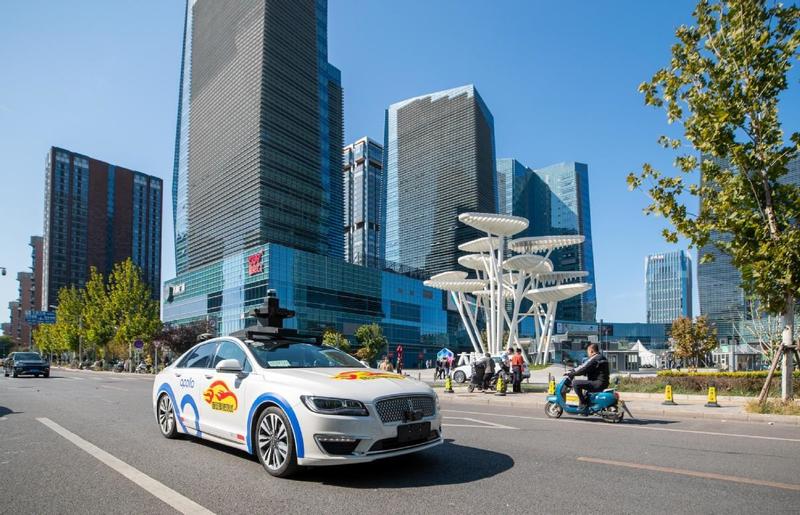 In this undated photo, a Baidu driverless vehicle undergoes road trials in Beijing. (PHOTO / CHINADAILY.COM.CN)
In this undated photo, a Baidu driverless vehicle undergoes road trials in Beijing. (PHOTO / CHINADAILY.COM.CN)
China plans to allow autonomous vehicles to be tested on highways, as local companies, which have developed self-driving technologies for expressways, are keen to test their vehicles in a wide range of scenarios, according to a draft regulation published by the nation's top industry regulator.
The Ministry of Industry and Information Technology published the draft national guideline on its official website on Monday for public opinion. It is an update of a guideline released in 2018.
Currently, there is no national regulation that allows autonomous vehicles to be tested on highways in China, which makes it difficult for companies to gather the relevant data to improve their technologies.
Sensing the emergence of domestic self-driving technologies for expressways, the ministry said there is a need to expand the scope for road tests and pilot applications of intelligent connected vehicles to include highways. But efforts will be made to ensure safety, the ministry said.
The draft guideline said provincial and municipal governments can select representative roads and regions, including highways, in their administrative areas for testing self-driving vehicles.
Meanwhile, unmanned vehicles for professional use, such as self-driving sanitation vehicles, are allowed to apply for road tests under the draft guideline.
Zhang Xiang, an automobile analyst at the new energy and intelligent connected car industry think tank under the Ministry of Industry and Information Technology, said testing autonomous vehicles on highways is an essential step toward the commercialization of self-driving vehicles, especially self-driving trucks
ALSO READ: Beijing gives boost to driverless cars
The ministry said that China has opened 2,000 kilometers of public roads for testing of intelligent connected vehicles, and it has issued more than 400 licenses to companies for self-driving tests, with the total road test mileage exceeding 2 million kilometers.
Experts said the move is expected to accelerate the development of China's self-driving technologies and quicken the commercialization of autonomous vehicles on roads.
Zhang Xiang, an automobile analyst at the new energy and intelligent connected car industry think tank under the Ministry of Industry and Information Technology, said testing autonomous vehicles on highways is an essential step toward the commercialization of self-driving vehicles, especially self-driving trucks.
Only when unmanned vehicles are proved to be secure on highways can they be used for real-life scenarios, Zhang said.
Currently, Germany, the United Kingdom, South Korea and Singapore have already allowed self-driving vehicles to be tested on highways, the ministry said.
China is planning to realize the scale production of vehicles capable of conditional autonomous driving and commercialization of highly autonomous vehicles in certain circumstances by 2025, according to a blueprint issued earlier by the National Development and Reform Commission, the Ministry of Industry and Information Technology and nine other ministries.
READ MORE: Driverless trucks to revamp road delivery network
Online search engine giant Baidu Inc said last month that it has received permission from transport authorities in Beijing to conduct road tests for five fully driverless vehicles, where there is no safety driver in the autonomous driving vehicle.
Chinese tech giant Didi Chuxing also opened its self-driving ride-hailing services to passengers in parts of Shanghai in June.
Cheng Wei, CEO and founder of Didi, said it will take at least 10 years of consistent investment to see self-driving vehicles achieve maturity in technologies, commercial values and legal regulations.


